Resolving the Suez Crisis:
Successful Debate & Diplomacy in the Cold War
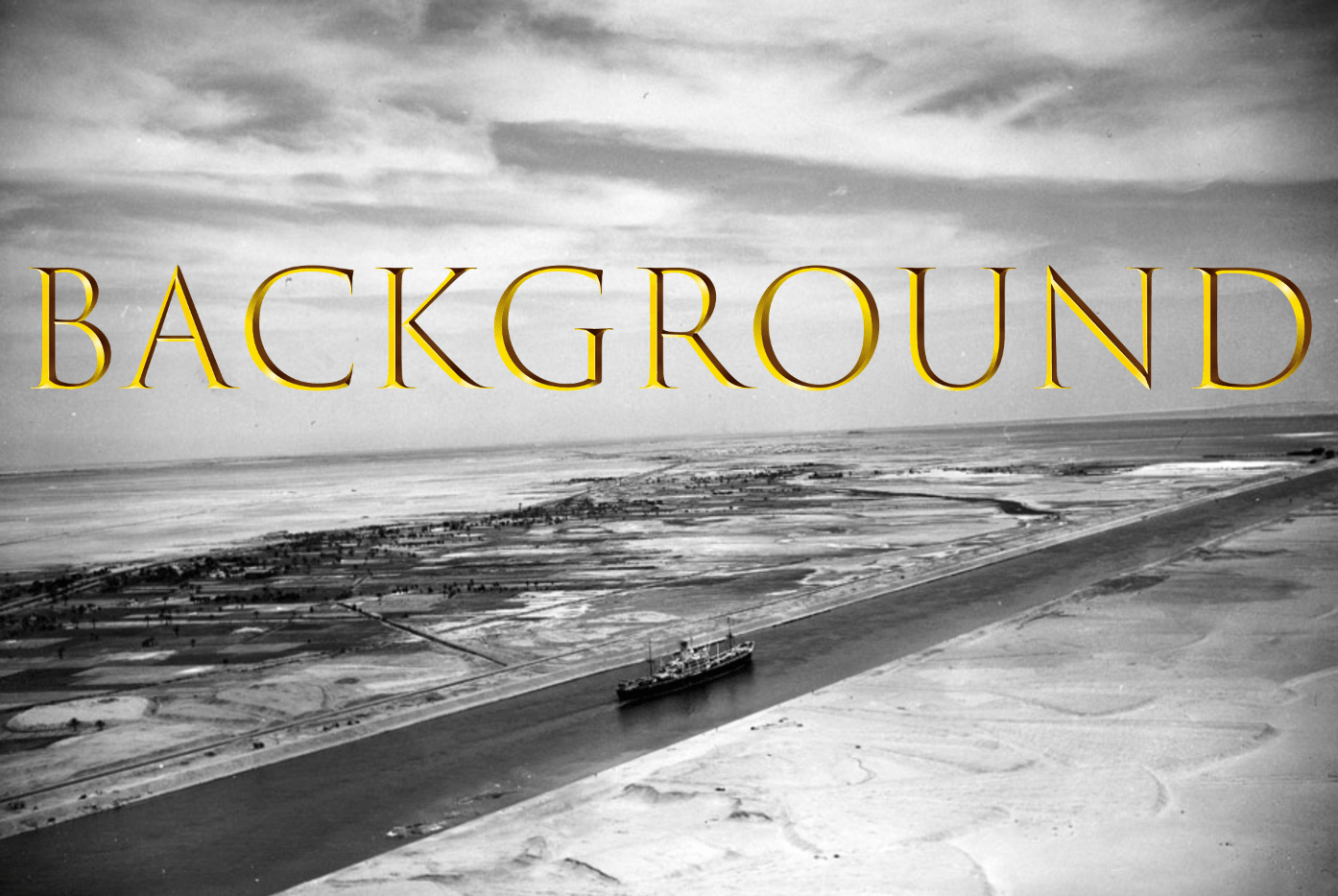
Ship passing through the Suez Canal near Ismailia, Egypt, 1953, Ahram.
Cold War
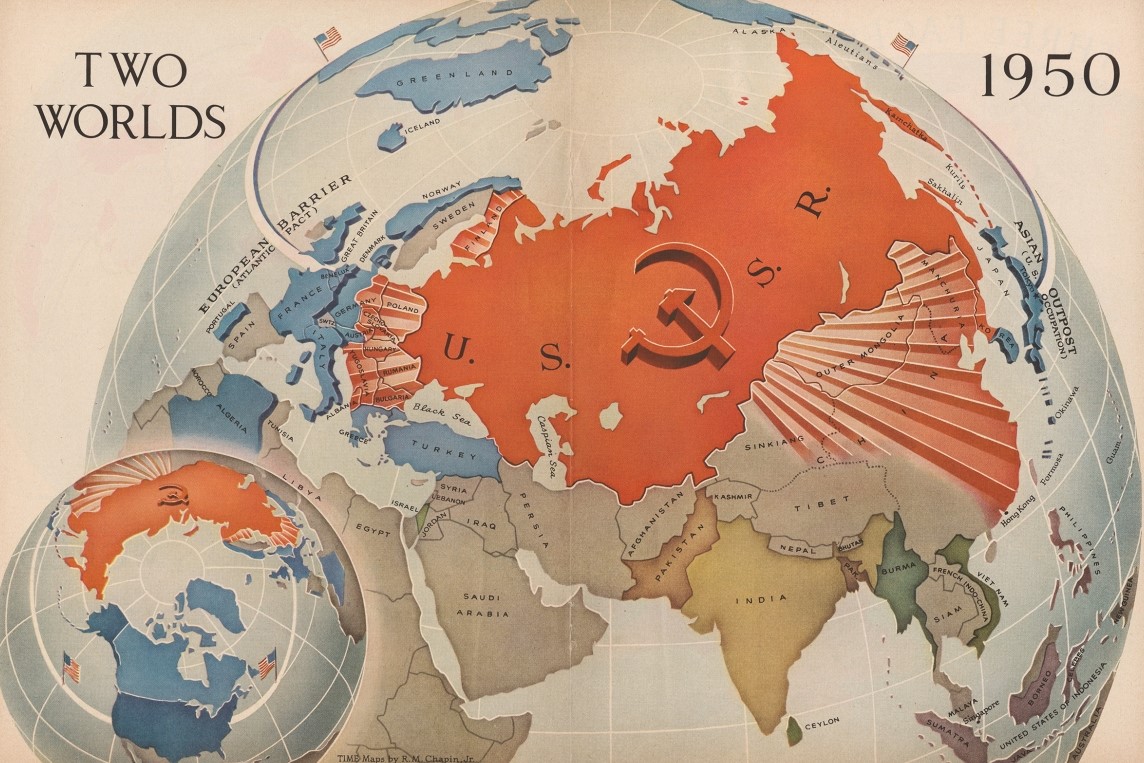
Anti-Communist Map, Time Magazine, 1950, Science History.
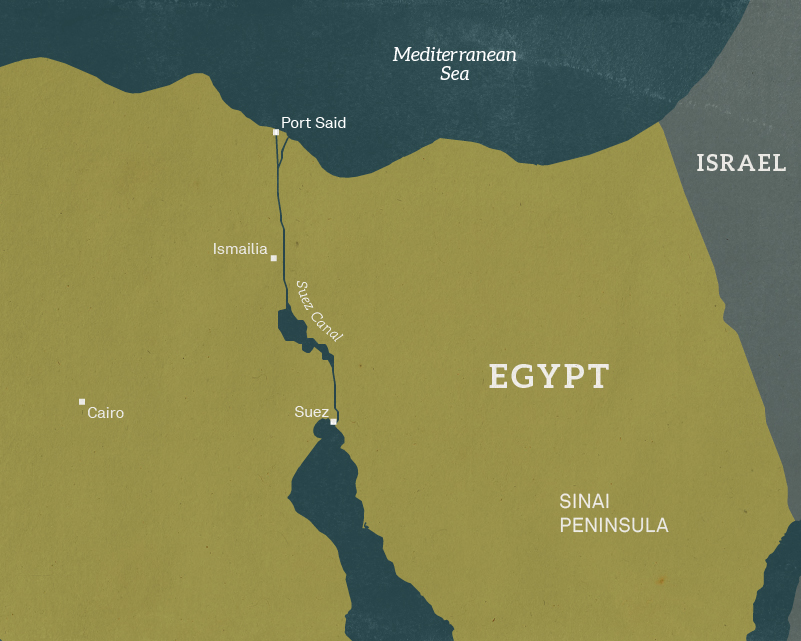
Map of north-east Egypt from 1956, UK National Army Museum.
Following WWII, the United States and USSR were locked in a geopolitical rivalry to spread their influence in the Middle East. In 1953, Colonel Gamal Nasser led a coup with U.S. assistance to overthrow British troops from Egypt following the constraining Anglo-Egyptian Treaty.
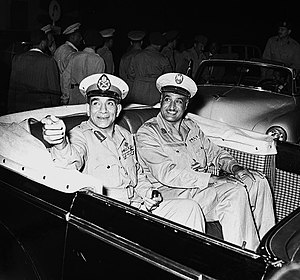
Leaders of the Egyptian Revolution Mohammed Naguib (left) and Gamal Nasser (right) in Cadillac, 23 July 1952, Wikipedia.
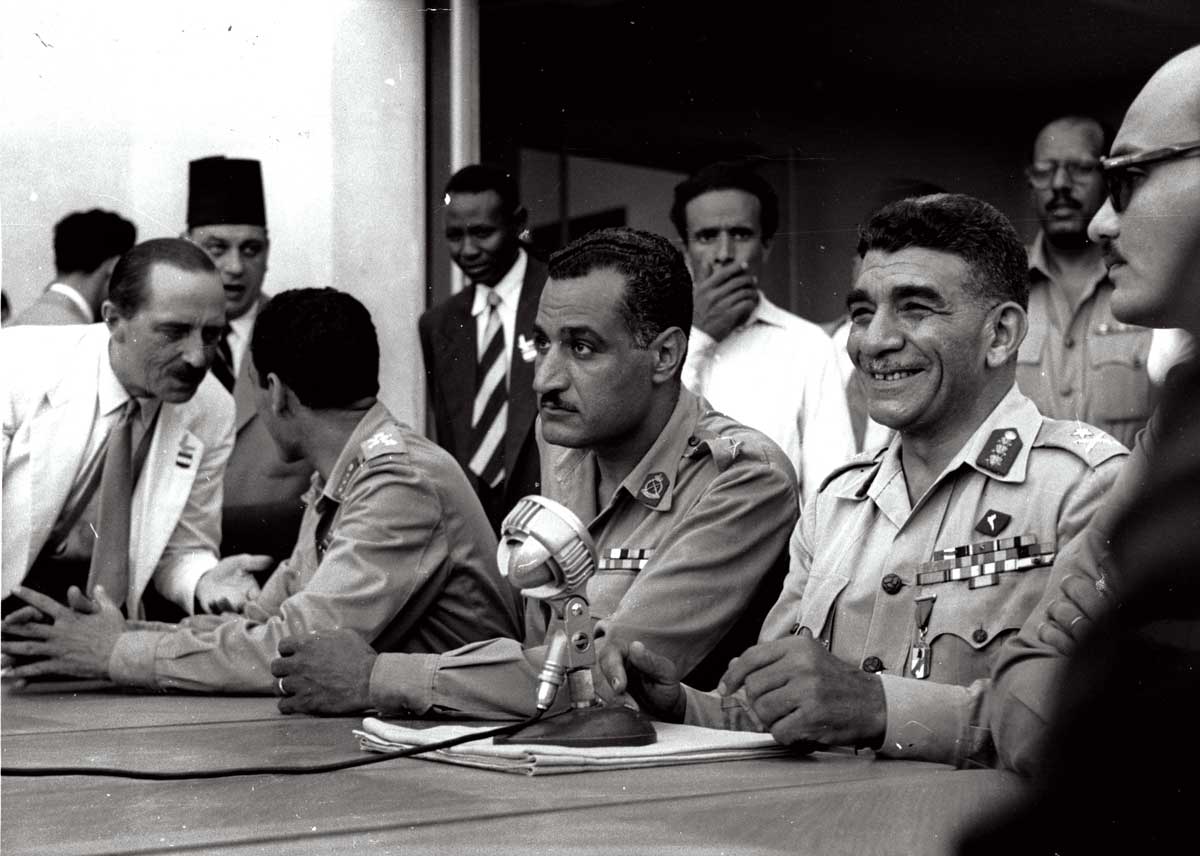
Colonel Nasser (left) with General Naguib at a press conference, 1953, History Today.
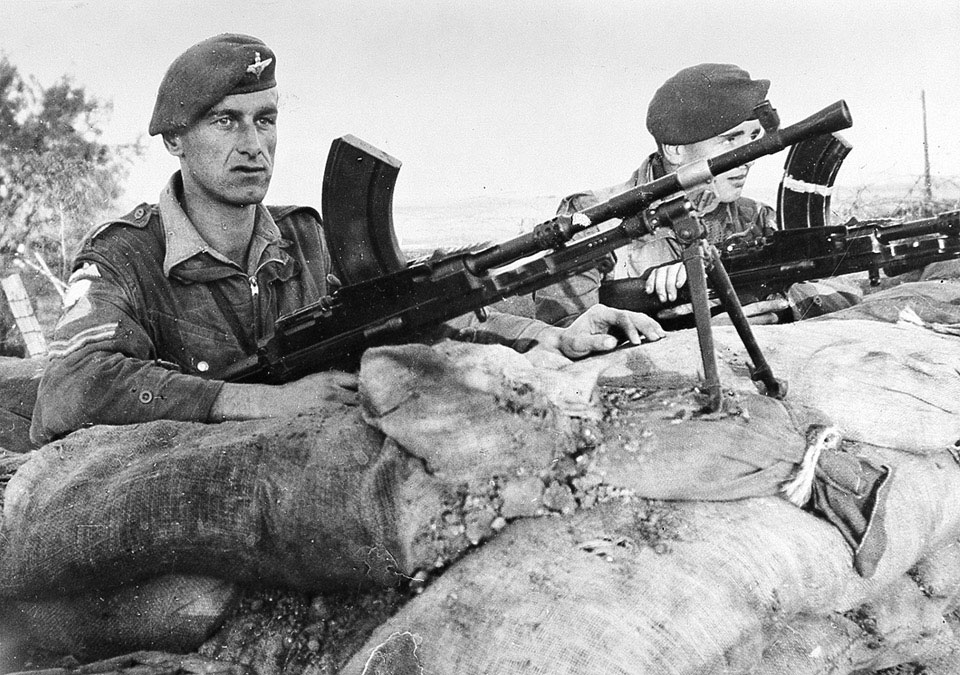
Corporal Kerr, The Parachute Regiment, 3rd Battalion, protecting the Suez, 25 December 1951, UK National Army Museum.
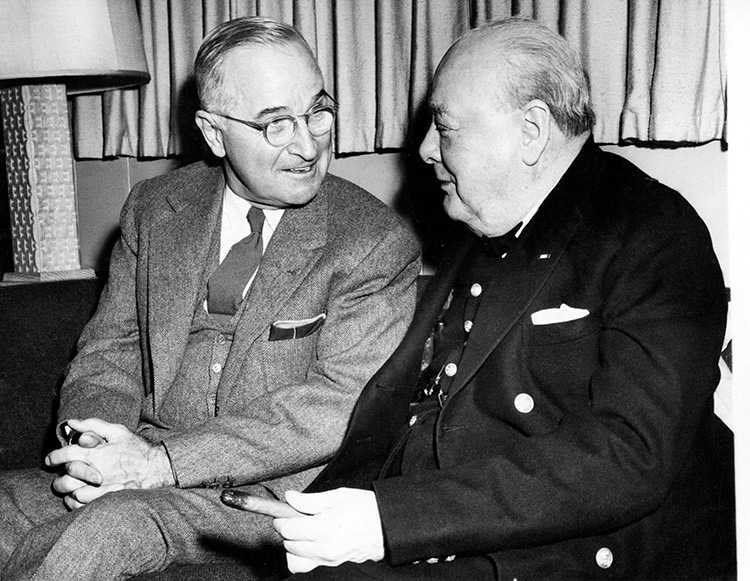
President Truman with Winston Churchill in Washington D.C., 10 January 1952, History Today.
“We are no longer strong enough ourselves to bear the whole political burden we have hitherto borne in the Mediterranean, or even to take the leading part in the diplomatic control of that theatre. But the United States and Britain together, aided by France… we three together would be in a most powerful position with, say, the Egyptian problem and the whole question of the defence of the Suez Canal."
~ Winston Churchill, April 1951, Kissinger Diplomacy
Egyptian Nationalism
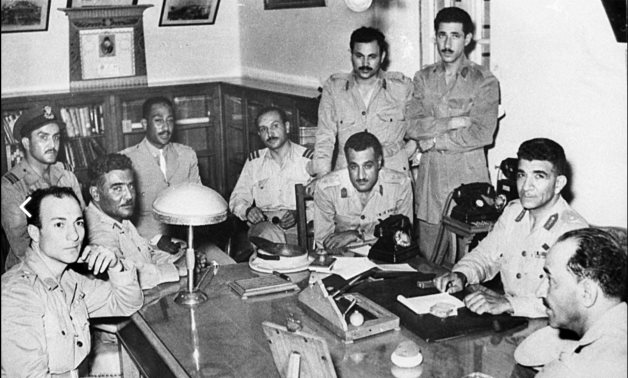
Nasser with his "Free Officers", 23 July 1952, Egypt Today.
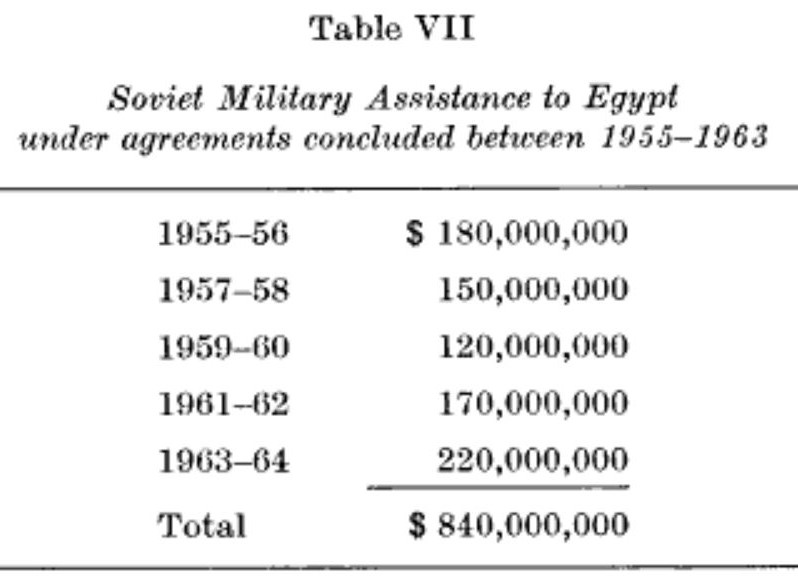
Soviet Military Assitance to Egypt, by Holbik and Drachman, JSTOR.

President Nasser hoisted above a crowd in Mansoura, Egypt, The Wall Street Journal.
Two years later, Khruschev stoked the flames of Arab nationalism by selling weapons to Egypt, which concurrently challenged NATO’s dominance. In response, the United States and the United Kingdom proposed the Aswan High Dam to both regulate the Nile and gain financial control over Egypt against the USSR; however, the negotiations failed, and Nasser seized the Suez Canal, potentially sparking a nuclear war.
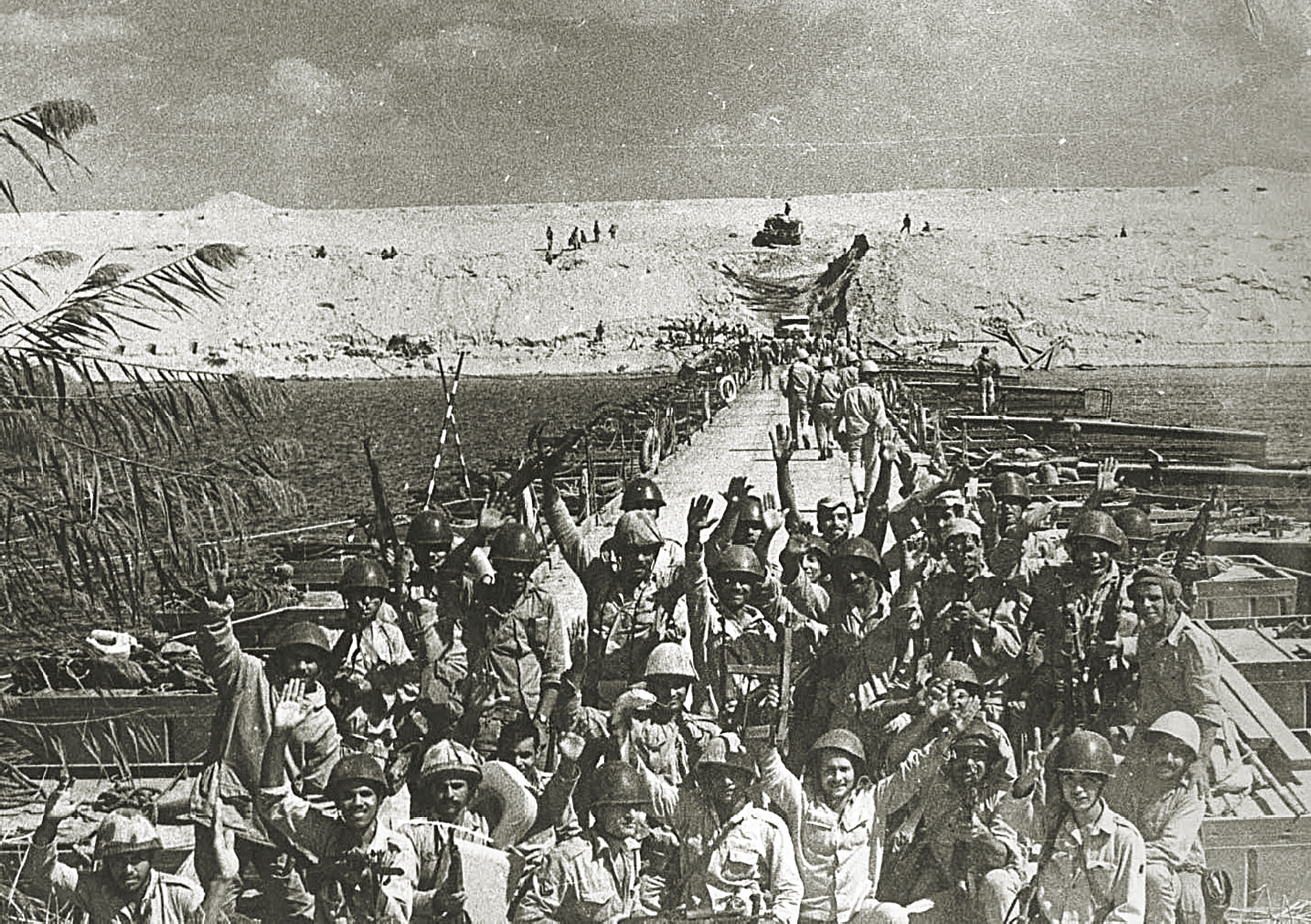
Egyptian soldiers celebrating after crossing the Suez Canal, Historynet.